READER COMMENTS ON
"FL-13 UPDATE: New U.S. House Administration Comm. Chair Sends Letter, Puts Florida Court on Notice Concerning Release of Touch-Screen Voting Machine Source Code in Jennings/Buchanan Election!"
(8 Responses so far...)
COMMENT #1 [Permalink]
...
Catherine a
said on 1/5/2007 @ 4:05 pm PT...
This is very interesting and significant.
Of course the whole claim of "trade secrets" is bogus. There are all kinds of proprietary code that are subjected to independent evaluation and testing all the time. There is no reason for voting machine code to be exempt, and there is every reason to say it is crucial that election hardware be subject to public scrutiny (if necessary with signed agreements not to publish the source code or supply it to a potential competitor).
The public good should come first in any case--it should pre-empt any protection of corporate "trade secrets."
COMMENT #2 [Permalink]
...
BillORightsMan
said on 1/6/2007 @ 1:06 am PT...
The public good should come first in any case--it should pre-empt any protection of corporate "trade secrets."
As obvious as it is to you and me to have open accountability of software (I'm HCPB, meself), unfortunately the BCF has been installing so-called "Reconstructionist" or "Federalist" judges all across America, at every level, for the past six years.
This is a classic example of Republican "Free Market" (aka no compete) privatization of ALL THINGS, from land rights to Enron frames (if not for enron, the recall would have never happened) and the Military (blackwater, haliburton). The entire "Free Markets are always more efficient and The Market can do it better and cheaper without Federal Relgulation" ideology is a sham, undermining democracy. In practice it is a vehicle for corruption and cronyism (heckofajobbrownie) and a tiny lot of people getting rich on our (taxpayer) expense.
Our voting systems have been sold out to the highest bidder since 2000, pretty much UNREGULATED, and held in PRIVATE PARTISAN HANDS (which btw do NOT have to disclose to shareholders).
Worth repeating:
The public good should come first in any case--it should pre-empt any protection of corporate "trade secrets."
COMMENT #3 [Permalink]
...
Larry Bergan
said on 1/6/2007 @ 10:31 pm PT...
A congresswoman who gets tough on the right people. What a concept. Her children can be proud.
COMMENT #4 [Permalink]
...
big dan
said on 1/7/2007 @ 6:59 am PT...
The still unresigned Judge William L. Gary...helping ruin American democracy.
I someone should start a movement to get this unAmerican, unPatriotic judge off the bench.
Is he getting a kickback from an e-vote machine company, or something?
COMMENT #5 [Permalink]
...
Arry
said on 1/7/2007 @ 7:58 am PT...
Could be, but probably he thinks corporations are the real persons (the people who live in the mansions) and American citizens are those who live out back in the shanties and keep the corporations in the condition they are accustomed to.
COMMENT #6 [Permalink]
...
Lyleblog
said on 1/7/2007 @ 10:00 am PT...
Will This Provide the Opening To Have Clint Curtis Revisit HIs Deposition Concerning Tom Feeny?
What has been generally ignored is the fact that Feeny approached Clint Curtis to program for the machines. What botched the program for working F O R Buchanan is that the opposition to him was so strong and the number of candidates to spread the numbers around was so minute.
The program went into overload and just erased possibly most of the oppositoin votes and some of Buchanan's also.
Can Feeny be required to testify in a hearing?
ES&S should be required to produce, for examination, the source code that corrupted the election, (not the source code that they want to present to vindicate themselves).
Contempt of Congress still carries weight, I believe, and should be enough to have ES&S decide whether they want to continue to do business.
Republicans Still Own The Best Judges Money Can Buy
COMMENT #7 [Permalink]
...
Savantster
said on 1/7/2007 @ 3:21 pm PT...
Just another in a LOG list of reasons for the Feds to make "private machiens" illegal during elections. In order to get contracts, the corps aught to have to sign waivers to ownership of the code.
What? they cry about not being able to do that with Bill Gate's code? that they use as a base? that buggy bullshit OS of his? Here's a fuckin clue.. USE LINUX maybe? Then it's all public domain anyway.. and we can see ALL the code with no worries..
Beter yet, get rid the machines all together and use a more autditable and easier system.. PAPER BALLOTS and HAND COUNTING. If the American Public is too stupid to figure out how to use paper ballots, and to count them, then we should just drop a few nukes on ourselves..
COMMENT #8 [Permalink]
...
calipendence
said on 1/8/2007 @ 11:42 pm PT...
Hmm... Found the Ventura County article on Debra Bowen, which has made us all feel good here. Now I'm seeing an article from CBS News on the Jennings race that I think shows what's BAD about the corporate media and their increasingly more visible right wing agenda. They are publishing the following article from the National Review on this race which is trying to rationalize that a number of recounts have been done that don't show anomalies, and that the undervotes aren't a statistical anomaly due to something wrong with the machines but because of ballot design which had the governor's race on the same screen as this race that caused confusion in Sarasota County's machines.
Brad, it would be good to see your take on their analysis. Heck, even a Republican responding at the bottom takes issue with their negative characterization of optical scan machines vs. the DRE's.



 Kamala Rising:
Kamala Rising: Evidence Fails to Establish Attempted Trump Assass-ination Politically Motivated
Evidence Fails to Establish Attempted Trump Assass-ination Politically Motivated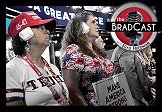 Former MAGA 'Cultist' on the State of the Race for 'MAGA Americans': 'BradCast' 7/23/24
Former MAGA 'Cultist' on the State of the Race for 'MAGA Americans': 'BradCast' 7/23/24  'Green News Report' 7/23/24
'Green News Report' 7/23/24
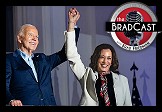 Biden Out, Endorses
Biden Out, Endorses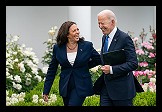 BIDEN DROPS REELECTION BID
BIDEN DROPS REELECTION BID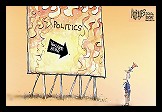 Sunday 'You Are Here' Toons
Sunday 'You Are Here' Toons What J.D. Vance Forgot to Tell You (and Lied About) at the RNC: 'BradCast' 7/18/24
What J.D. Vance Forgot to Tell You (and Lied About) at the RNC: 'BradCast' 7/18/24 'Green News Report' 7/18/24
'Green News Report' 7/18/24 Holding on for Dear Life Amid the Political Whirlwind: 'BradCast' 7/17/24
Holding on for Dear Life Amid the Political Whirlwind: 'BradCast' 7/17/24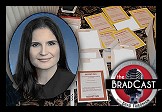 Cannon's Corruption: 'BradCast' 7/16/24
Cannon's Corruption: 'BradCast' 7/16/24 'Green News Report' 7/16/24
'Green News Report' 7/16/24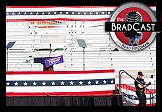 Amid the Assassination Attempt Aftermath:
Amid the Assassination Attempt Aftermath:
 Meanwhile... : 'BradCast' 7/11/24
Meanwhile... : 'BradCast' 7/11/24 'Green News Report' 7/11/24
'Green News Report' 7/11/24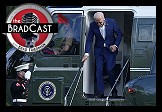 Paging 'Johnny Unbeatable'! Dems (Actually!) in Disarray!: 'BradCast' 7/10/24
Paging 'Johnny Unbeatable'! Dems (Actually!) in Disarray!: 'BradCast' 7/10/24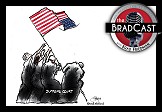 SCOTUS Immunity Ruling 'As Bad as it Sounds', And Worse: 'BradCast' 7/9/24
SCOTUS Immunity Ruling 'As Bad as it Sounds', And Worse: 'BradCast' 7/9/24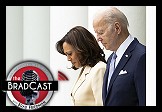 So, What Now?: 'BradCast' 7/8/24
So, What Now?: 'BradCast' 7/8/24 Debunking MAGA Cult Xenophobia
Debunking MAGA Cult Xenophobia A Friendly Suggestion: Harris-Newsom 2024
A Friendly Suggestion: Harris-Newsom 2024 Prosecutor: SCOTUS Corruption Ruling Less Corrupt Than Appears: 'BradCast' 6/27/24
Prosecutor: SCOTUS Corruption Ruling Less Corrupt Than Appears: 'BradCast' 6/27/24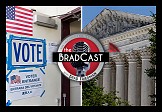 Good News and Bad: At the Polls and From the Corrupted Court: 'BradCast' 6/26/24
Good News and Bad: At the Polls and From the Corrupted Court: 'BradCast' 6/26/24 'Emptywheel' on Assange Hacking, Plea Deal: 'BradCast' 6/25/24
'Emptywheel' on Assange Hacking, Plea Deal: 'BradCast' 6/25/24
 VA GOP VOTER REG FRAUDSTER OFF HOOK
VA GOP VOTER REG FRAUDSTER OFF HOOK Criminal GOP Voter Registration Fraud Probe Expanding in VA
Criminal GOP Voter Registration Fraud Probe Expanding in VA DOJ PROBE SOUGHT AFTER VA ARREST
DOJ PROBE SOUGHT AFTER VA ARREST Arrest in VA: GOP Voter Reg Scandal Widens
Arrest in VA: GOP Voter Reg Scandal Widens ALL TOGETHER: ROVE, SPROUL, KOCHS, RNC
ALL TOGETHER: ROVE, SPROUL, KOCHS, RNC LATimes: RNC's 'Fired' Sproul Working for Repubs in 'as Many as 30 States'
LATimes: RNC's 'Fired' Sproul Working for Repubs in 'as Many as 30 States' 'Fired' Sproul Group 'Cloned', Still Working for Republicans in At Least 10 States
'Fired' Sproul Group 'Cloned', Still Working for Republicans in At Least 10 States FINALLY: FOX ON GOP REG FRAUD SCANDAL
FINALLY: FOX ON GOP REG FRAUD SCANDAL COLORADO FOLLOWS FLORIDA WITH GOP CRIMINAL INVESTIGATION
COLORADO FOLLOWS FLORIDA WITH GOP CRIMINAL INVESTIGATION CRIMINAL PROBE LAUNCHED INTO GOP VOTER REGISTRATION FRAUD SCANDAL IN FL
CRIMINAL PROBE LAUNCHED INTO GOP VOTER REGISTRATION FRAUD SCANDAL IN FL Brad Breaks PA Photo ID & GOP Registration Fraud Scandal News on Hartmann TV
Brad Breaks PA Photo ID & GOP Registration Fraud Scandal News on Hartmann TV  CAUGHT ON TAPE: COORDINATED NATIONWIDE GOP VOTER REG SCAM
CAUGHT ON TAPE: COORDINATED NATIONWIDE GOP VOTER REG SCAM CRIMINAL ELECTION FRAUD COMPLAINT FILED AGAINST GOP 'FRAUD' FIRM
CRIMINAL ELECTION FRAUD COMPLAINT FILED AGAINST GOP 'FRAUD' FIRM RICK SCOTT GETS ROLLED IN GOP REGISTRATION FRAUD SCANDAL
RICK SCOTT GETS ROLLED IN GOP REGISTRATION FRAUD SCANDAL VIDEO: Brad Breaks GOP Reg Fraud Scandal on Hartmann TV
VIDEO: Brad Breaks GOP Reg Fraud Scandal on Hartmann TV RNC FIRES NATIONAL VOTER REGISTRATION FIRM FOR FRAUD
RNC FIRES NATIONAL VOTER REGISTRATION FIRM FOR FRAUD EXCLUSIVE: Intvw w/ FL Official Who First Discovered GOP Reg Fraud
EXCLUSIVE: Intvw w/ FL Official Who First Discovered GOP Reg Fraud GOP REGISTRATION FRAUD FOUND IN FL
GOP REGISTRATION FRAUD FOUND IN FL


































